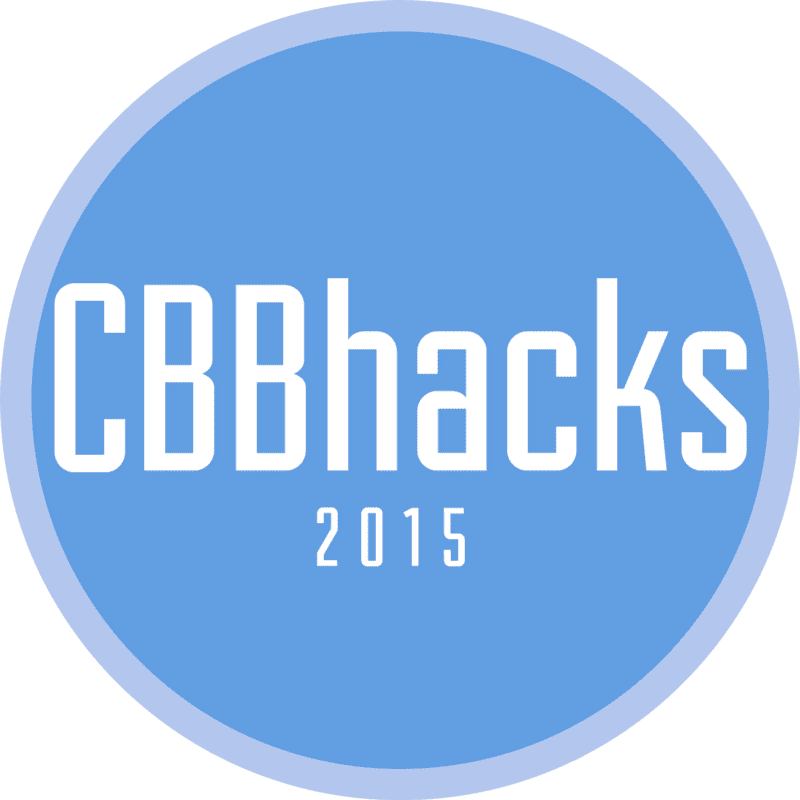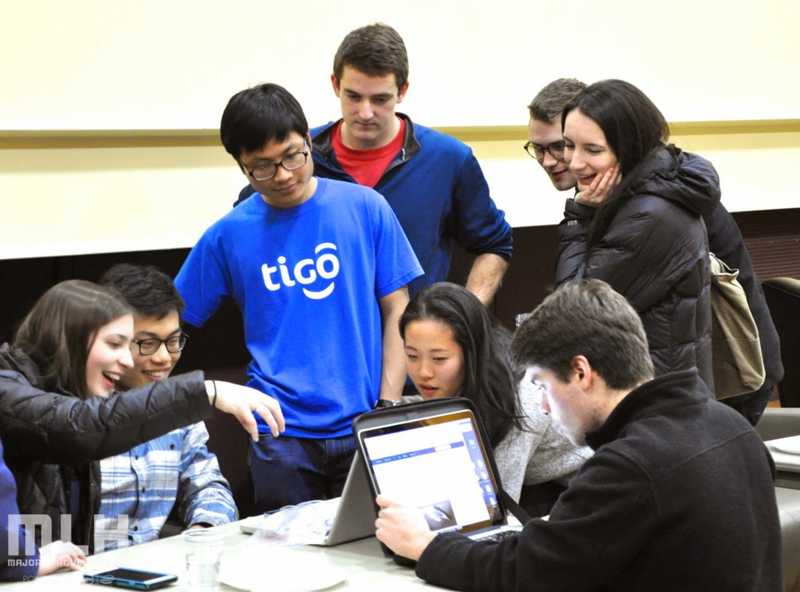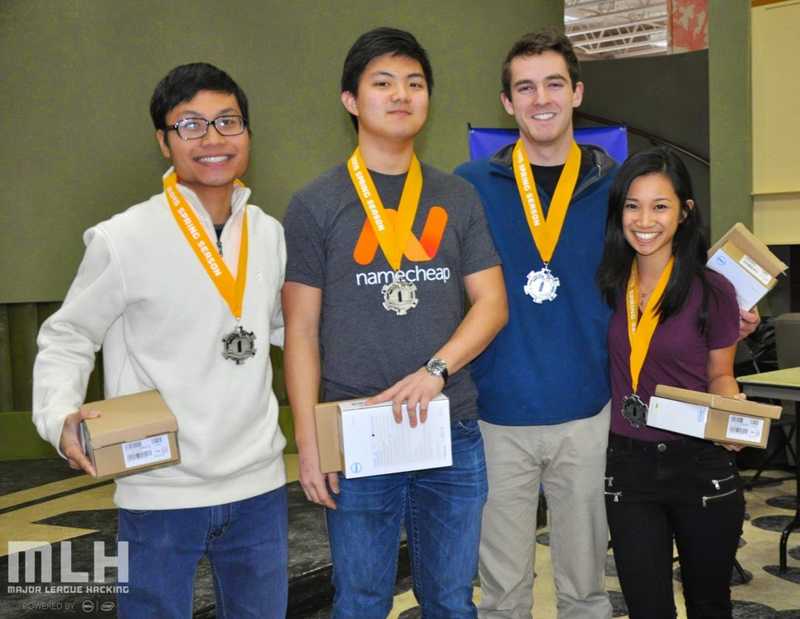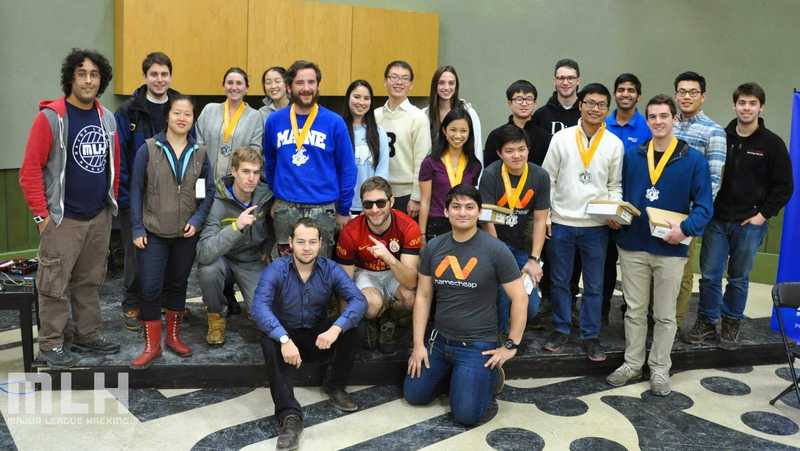A year ago, I attended the MHacks hackathon. MHacks, held biannually in downtown Detroit, is one of the largest student hackathons in the United States. Together with a group of students I had never met before from diverse backgrounds, we worked to build a textbook exchange application running on Python/Django. When I got back to school the week after MHacks, I kept thinking about the sheer logistical nightmare hosting a hackathon must be. (Thanks to a great Medium series by the leaders behind MHacks, I did not have to wonder for too long). Bowdoin College — a small liberal arts college in Brunswick, Maine — is the place I call home during the academic year. Although I had an amazing weekend with really great people, I did not think students at a liberal arts college like Bowdoin would have much interest in this kind of experience.
In my spare time at Bowdoin, I lead a group known as the Information Technology Advisory Council (ITAC). We work directly with the College’s Chief Information Officer, and our mission is to enhance the student body’s experience at Bowdoin by simplifying outdated workflows with new tech. This past fall, one of our members brought up the idea of hosting a hackathon on campus. Though I remained a tad skeptical, I realized the only way to find out if the idea of a hackathon had any potential was by trying, and gauging student response. So we set off to begin organizing the first hackathon for liberal arts colleges, and the first student hackathon in Maine, CBBhacks. (CBB stands for Colby-Bates-Bowdoin, the primary colleges we expected attendees from).
“I hope that students dive into this space and learn how to work across their ideas and skills to put together apps, websites, maker tech & other projects.”
- Jack Gieseking, New Media & Data Visualization Specialist at Bowdoin
Fortunately for us, Bowdoin College alumni are among the friendliest, most dedicated alums of any school. Though you might not expect it from a liberal arts college, we have amazing alums at places like Google, Hubspot, Okta, Mass Challenge, Raizlabs, L.L. Bean, and elsewhere. With their help, the support of Bowdoin’s own Student Activities office, and the assistance of the Bowdoin administration, we were able to establish a budget for the event and get word out about CBBhacks at the College and at other nearby schools like Colby, Bates, and others. Additionally, we were able to get in contact with several local Maine entrepreneurs, including Jason Cianchette, founder of Liquid Wireless, and Jess Knox, founder of several growth accelerating companies and Maine’s Startup and Create Week conference, both of whom were delighted to help us out with speaking and judging at the hackathon. We even had some awesome representatives from Code for America at the event.
“If I were a college student, I’d be traveling to Bowdoin College this weekend to take part in [CBBhacks].”
- Whit Richardson, Portland Press Herald
Once people knew about the event, our biggest challenge was combating the stigma behind the word “hacking”. Though hackathons are now commonplace among many larger schools across the country, the word “hack” still sends the wrong message at schools like Bowdoin. Fielding questions like “what are you hacking into?”, “is this legal?”, and “Do I need to know how to code?” became daily rituals, despite our best efforts to advertise the event as one for technical and nontechnical entrepreneurs alike.
“To hack means to build something quickly in a scrappy, innovative way without a lot of resources.”
- Rebecca Goldfine, Bowdoin Daily Sun
Our goal for the event had been set as a high bar: get 100–150 students to register for the event. By the day of the event, we had gotten 151 people to register. Of course, we did not for a moment foresee all of them attending — Attrition rates for events like hackathons are notoriously high, often upwards of 60%. When prompted for confirmation of their attendance from students, we only heard back from roughly half of them, and we knew to expect even fewer students than that. Still, despite being a relatively small event, we were proud of how many people we had gotten to sign up, as well as of the support and attention we were getting for the event. After all, this was the first hackathon at Bowdoin, and we hoped it would be just a starting point.
The event came and it was undeniably a success. We got students there from our target schools, professors, mentors, entrepreneurs, and people from different areas of the college who were all interested in showing their support for the first ever CBBhacks. Though the attendance was low even by our estimates, we were extremely pleased with everyone who did show up. There were plenty of computer science students, but we also had students from psychology, english, government, biology and math majors. Some students stayed up working the whole weekend, though most chose to sleep the first night and work the second. Our speakers discussed topics like entrepreneurship, founding companies, selling companies, being liberal arts students in highly competitive technical environments, and more. All in all, everyone there had a really good time and got to do something they had never done before they left.
When the awards came Sunday morning, everyone was excited to deliver their presentations to our panel of judges. We saw ideas like music-generating genetic algorithms, mom-and-pop hotel membership programs, Oculus VR game concepts and, amusingly, textbook exchange programs. We were able to give out really great prizes like Raspberry Pi kits, Drones, and Leap Motions that we hope will encourage our hackers to keep hacking in their spare time. The winning team was a group of Bowdoin and Bates students that received a set of Dell tablets courtesy of Major League Hacking, a scholarship to Top Gun Prep, an online entrepreneurship course, and the opportunity to pitch their idea at the Maine Startup and Create week.
At the end of the event, I asked all of our attendees to raise their hands if they had learned to code, learned a new programming language, or learned a new framework over the weekend. I was astonished and proud to see almost every hand in the room go up. In my opinion, that’s what hackathons are about. Learning. Growing. Teamwork. It is my hope that next year, this great group of students will return and share their experiences with their friends to get them hacking, too. Though we have lots of work to do in terms of getting liberal arts students more comfortable with “hacking”, we believe this was a fantastic first step and are now convinced that hacker/maker culture is an invaluable part of modern education that liberal arts students should not miss out on.



